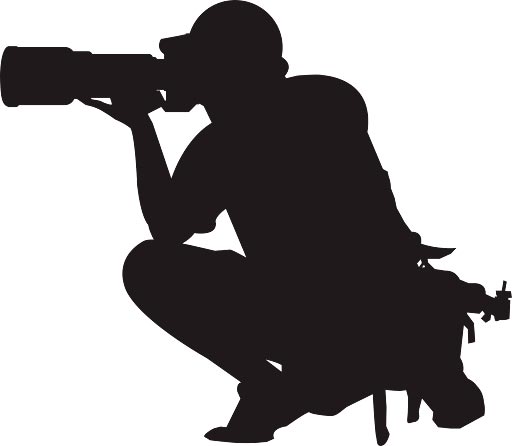Give your opinion
Save the world or tell how it burns?
Adrián Samayoa Mendoza, student of the Double Degree in History and Journalism, reflects on the social work of journalists at this time of conflict and political revisionism.

The correspondents covering the war in Ukraine do an important job for Europe: they make it part of the conflict, bring it closer and give it a higher profile. They risk their lives to help civilians who, trapped in the conflict, can do nothing but wait. From this perspective, the question should be asked: should journalists focus their work on reporting what is happening or should they take a more active role as social workers? At final, their job is not to entertain an audience, but to inform citizens about what is happening and thus what affects them, including mobilising citizens when their freedom is threatened. Their responsibility is therefore very great and to be indifferent to it is tantamount to neglecting it. We are going to raise two issues: why journalists cannot opt for a passive or indifferent attitude and the importance of their involvement in events for three reasons: to seek the truth, to give a voice to the voiceless and to enable citizens to make free decisions.
The role played by the media has been analysed from many perspectives. Some would say, clearly, that the journalist's job is not to change the story, but to tell it (González, 2019). In this view, the journalist should detach him/herself from the information and dedicate him/herself solely to transmitting it, in the words of Sánchez de la Nieta: "A spectator of the information process" (Nieta, 2016). This ensures that the information is not "contaminated" by the journalist's opinion or point of view. Thus, journalism becomes a passive profession, charged only with receiving and transmitting it. It will gather no information other than that offered by sources and will not even question whether there is anything beyond what is found. This position falls into a contradiction: journalists have committed themselves to the search for truth.
Authors such as Bill Kovach and Tom Rosenstiel do not agree with agreement on this. They believe that the journalist's role goes beyond that of a mediator between reality and readers and that it is up to journalists to make the consequences of events known and understandable to the whole audience (Bill & Tom, 2012, p. 158). Their job cannot be limited to broadcasting data, otherwise they would not even have to travel to the places where the events take place: they would be able to get information from civilian sources. If this is so, why are the media sending journalists to the war in Ukraine? Because to seek the most objective truth possible, with its context, causes and consequences. Moreover, their social work is accentuated in conflicts where the population is overwhelmed by propaganda. This work is done "not only to have an informed and free society, but also to give a voice to the actors in the conflicts and, especially, to the civilian population that in most cases is silenced under the noise of war" (González, 2019).

But how far can journalists go? Is it justified to mix information with beliefs in order to move the population and governments? No. They cannot and should not manipulate, hide or simplify information in pursuit of the "common good" or what they may consider to be the "common good". Following this internship the journalist would cease to seek the truth. They must seek the middle ground: not to be completely passive, nor to get directly involved, which could jeopardise their objectivity. They should seek the common good and know what information should be conveyed.
To answer the question: is it the journalist's mission statement job to report on catastrophes and injustices or to solve them? The answer has already been made clear to us by Christiane Amanpour, CNN war correspondent: "When good people do nothing, the bad people succeed (...) We journalists, with our papers and pens, with laptops and satellite connections, cameras and TV equipment, can make a difference, we can help make the world a better place". Not by direct action, journalists should not take up arms and fight for Ukraine, nor should they give up their work to deliver food or help refugees. Their job is to convey information that might otherwise arrive incomplete, distorted or decontextualised. He is first and foremost a journalist: not because he cannot help those in need, and not because he does not want to, but because if he stops his work, information would be left in the hands of governments and propaganda campaigns. Many people can dedicate themselves to humanitarian financial aid , but only he can do good journalism: manager, goal and verified.
Works cited
Bill, K., & Tom, R. (2012). The elements of journalism. Everything journalists should know and citizens should expect. Madrid: Aguilar.
González, T. S. (02 October 2019). Los corresponsales de guerra: revisión y update del work periodístico en los conflictos. CISDE Journal of Strategic Thinking and Security, 4(2).
Nieta, M. Á. (2016). The renaissance of journalism: new technologies at the service of its essence. Pamplona: Eunsa.
Silverman, C. (06 June 2012). NiemanReports. Retrieved from A New Age for Truth.
If you liked the article, you might be interested in one of our Degrees!









